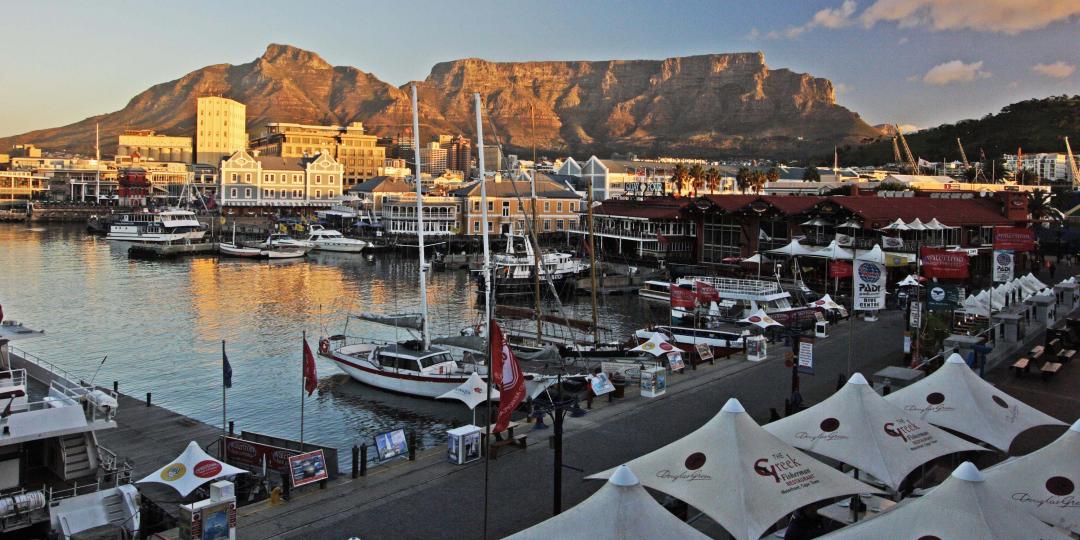The V&A Waterfront’s commissioning of a R184 million (€9m) water desalination plant has been applauded as a proactive move that could act as a blueprint for other coastal tourism operators to follow.
Co-owners of the popular tourist precinct in Cape Town, Growthpoint Properties and the Public Investment Corporation, will commission the plant in March and April this year. At full capacity, the plant will take the entire precinct – comprising a combination of retail, hospitality and industrial facilities – off the country’s water grid.
“As a privately owned space where 25 000 people work daily and with up to 180 000 visitors per day, the V&A Waterfront is a neighbourhood with sufficient scale to act as a test bed and a proving ground for new approaches and technologies that address the challenges of sustainability,” V&A Waterfront Head of Communications Donald Kau told Tourism Update.
The project will add to a number of other sustainability initiatives implemented by the precinct since 2010, including the installation of solar panels and electric car charging ports, and water-saving initiatives that have led to a 61% reduction in water consumption.
“The Waterfront is one of the most-visited destinations in Africa and a property responsible for almost 2% of the Western Cape economy and, as such, we’ve always taken our social and environmental responsibilities seriously but so do travellers who have an improved understanding of sustainable practices connected to their travel and travel destinations,” said Kau.
Hope for other facilities to follow suit
Hospitality association FEDHASA lauded the Waterfront for the move, expressing hope that it would act as a catalytic project.
“We hope the V&A Waterfront’s proactive, decisive stance encourages other seafront tourism and hospitality operators to follow suit in our water-scarce country. This strategic sustainability move not only benefits the environment, but also provides financial and operational security for the company, its tenants and visitors,” said FEDHASA National Chairperson, Rosemary Anderson.
She said with municipal services struggling, many inland hospitality operators were also securing independent water access by using groundwater and installing purification plants.
“This strategic self-reliance circumvents often unreliable municipal water provision. The same principle applies to effluent treatment. A number of municipal plants are under-capacity, prompting tourism operators to install private waste water treatment to gain approval.”
Lee-Ann Singer, FEDHASA Cape Chairperson, stressed that the Waterfront’s commitment to desalination aligned seamlessly with ongoing industry discussions on sustainability and renewable resources.
“Beyond environmental benefits, the potential for job creation associated with the development and maintenance of the desalination facility adds a socioeconomic dimension to this initiative. This aligns with FEDHASA's broader commitment to sustainable practices and job creation within the tourism sector,” said Singer.
Enhancing tourism potential
The V&A Waterfront’s status as a world-class destination is being further enhanced by the precinct’s holistic approach to sustainability.
“This initiative reflects a global trend observed in destinations like Barcelona and Dubai, where desalination projects have successfully addressed water scarcity challenges and positively impacted tourism,” Singer said.
Kau explained that the Waterfront’s operations were aligned with the UN World Tourism Organization’s three main areas of focus – education and skills; sustainable infrastructure and accelerated green transformation; and innovation, technology and entrepreneurship.
“Our journey has gone even further, with aspects such as a dedicated recycling plant that recovers half of all waste, an on-site blackwater treatment plant, and reducing use of single-use plastics as key examples,” said Kau.
The Waterfront is rated as one of Africa’s greenest precincts, achieving Diamond Status through the country’s Heritage Environmental Rating Programme. The precinct is home to 22 green-rated buildings from the Green Buildings Council of South Africa.























